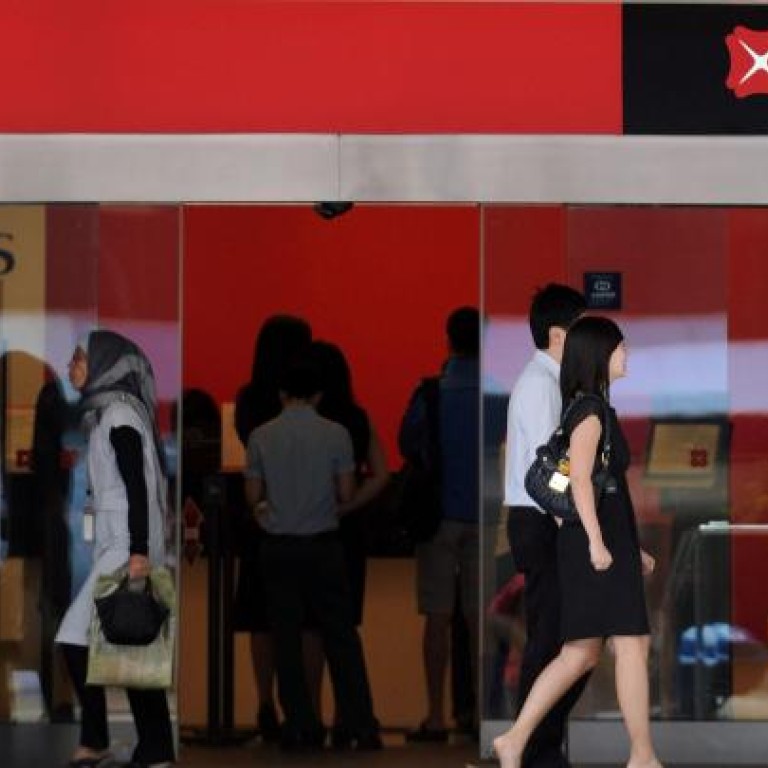
DBS to expand Hong Kong loan book through China trades
DBS's 2012 yuan trade settlement surged 60 per cent year-on-year, said Sebastian Paredes, the Singapore-based bank's chief executive for Hong Kong. He predicted that business using the yuan will grow beyond the 17 per cent of total revenue that it reached last year.
DBS Group, Southeast Asia's largest bank, plans to expand its Hong Kong loan book by about 10 per cent this year, mainly targeting small and medium-sized companies and trade with the mainland.
DBS's 2012 yuan trade settlement surged 60 per cent year-on-year, said Sebastian Paredes, the Singapore-based bank's chief executive for Hong Kong. He predicted that business using the yuan will grow beyond the 17 per cent of total revenue that it reached last year.
Lenders in Hong Kong handled about 90 per cent of the mainland's yuan-denominated trade payments last year, while sales of so-called dim sum bonds climbed to 174 billion yuan (HK$215 billion), a 15 per cent jump year on year, data shows. Premier Wen Jiabao last week pledged to expand global use of the currency as Beijing seeks to cut reliance on the US dollar.
Paredes said: "What we clearly want is to continue the RMB products, the RMB services and the RMB capabilities to be in the forefront of the banking sector. You would expect a continuation of rapid growth in the utilisation of the RMB not only in trade, but in FX, in money markets, in debt."
Hang Seng Bank said last week that loan growth may be stable this year as the city imposes mortgage restrictions to cool housing prices.
The bank, a subsidiary of HSBC, posted an 11 per cent rise in lending last year.
When Qianhai in Shenzhen became the testing ground for cross-border yuan loans, in which 15 banks based in Hong Kong provided about two billion yuan to companies in January, DBS was not among the lenders. But cross-border lending in Qianhai is "one of our key priorities", Paredes said. "We are discussing with several customers the opportunities to finance."
The bank is also keen to participate in the renminbi qualified foreign institutional investor programme, Paredes said. The RQFII allows yuan raised offshore to be invested in the mainland's domestic capital markets. Last week the mainland expanded it to include institutions registered in Hong Kong.
Net income at the Hong Kong division of DBS, the largest profit contributor outside Singapore, grew 25 per cent last year to S$716 million (HK$4.4 billion), while net interest income, the difference between what it makes from lending and what it pays on deposits, rose 12 per cent.
DBS will increase staff at its corporate banking unit, along with debt capital markets employees as companies turn to bonds and other debt obligations from loans, Paredes said. This year's increase will be less than 5 per cent, he said.
After increasing its staff by 16 per cent between 2009 and 2012, DBS has more than 4,000 employees in Hong Kong.

